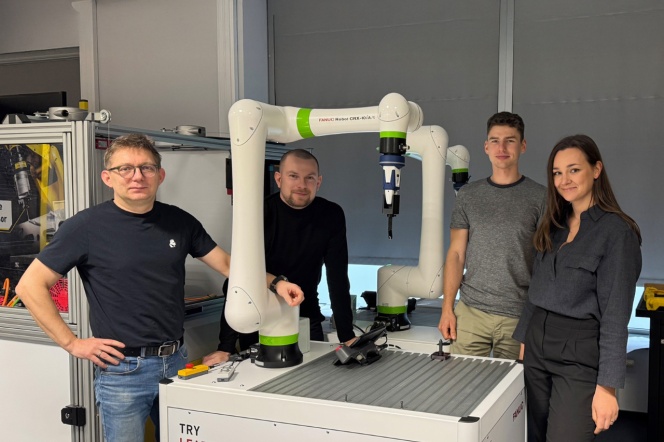Date added: 2025-01-20
Scientists want to create a skin model using 3D printing. Gdańsk Tech is the leader of the project

Scientists from three universities: Gdańsk University of Technology (project leader), Medical University of Gdańsk and University of Gdańsk have won the 27th edition of the OPUS competition, organized by the National Science Centre, within which they are preparing a project entitled "Application of spherical 3D printing to create a multilayer hydrogel skin model".
- In the future this will allow for the creation of personalized and spatial skin implants tailored to the patient - explained Prof. Michał Pikuła from GUMed.
In his opinion, there has been enormous progress in tissue engineering in recent years, but there are still many challenges ahead of this field.
He emphasized that the key problem in creating a skin model is the production of three-dimensional scaffolds that will provide cells with appropriate conditions for adhesion, proliferation and differentiation. - This is a special challenge, considering the high sensitivity of cells to environmental conditions - said the scientist.
Prof. Sylwia Rodziewicz-Motowidło from the University of Gdańsk emphasized that this project is not only a milestone in the creation of skin models, but it is also a response to contemporary ethical challenges.
The ban on testing cosmetics and their ingredients on animals in the European Union forces the development of alternative research methods. Printed skin models provide greater chemical and spatial compatibility with human skin, which makes them an ideal tool for the pharmaceutical and cosmetics industry as well - she assessed.
This is also emphasized by the head of the inter-university project of the Tri-City Fahrenheit Universities, Szymon Mania, PhD, Eng., from Gdańsk University of Technology. The scientist explains that bioprinting, a process that uses 3D printing to create biological structures, enables the design of structures at the micro- and macro-scale level, which allows for the precise reproduction of the natural skin niche.
"The development of a material and method for producing 'artificial skin' will not only allow for the creation of tailor-made therapies, but also for the creation of a research model for research centres to test inflammatory mechanisms, drug toxicity and diseases such as psoriasis or atopic dermatitis," he said.
He recalled that the world leaders in bioprinting are centres such as Harvard and the Massachusetts Institute of Technology (MIT), but thanks to the synergy of scientists from Gdańsk, Poland can become an equal partner in this field.
"The project, whose budget is approximately PLN 1.6 million, provides an opportunity not only to improve the quality of life of patients, but also to develop Polish science in the international arena," he said.
The project will be implemented for three years.
A team of scientists from Gdańsk University of Technology, headed by Szymon Mania, PhD, is responsible for developing a printable cellular bioink, which – after placing skin cells in it – will be adapted for robotic printing. The team from the University of Gdańsk, headed by Prof. Sylwia Rodziewicz-Motowidło, is developing pro-regenerative peptides, which will become a key component of the bioink and will provide a stimulating effect on regenerative processes. In turn, the GUMed team, headed by Prof. Michał Pikuła, will conduct research assessing the safety and biological properties of skin models in laboratory conditions and their clinical potential.
Source: naukawpolsce.pl
-
2025-11-26
Students scholarship (LoBG)
-
2025-10-24
Success Stories 4 – Gabriela



